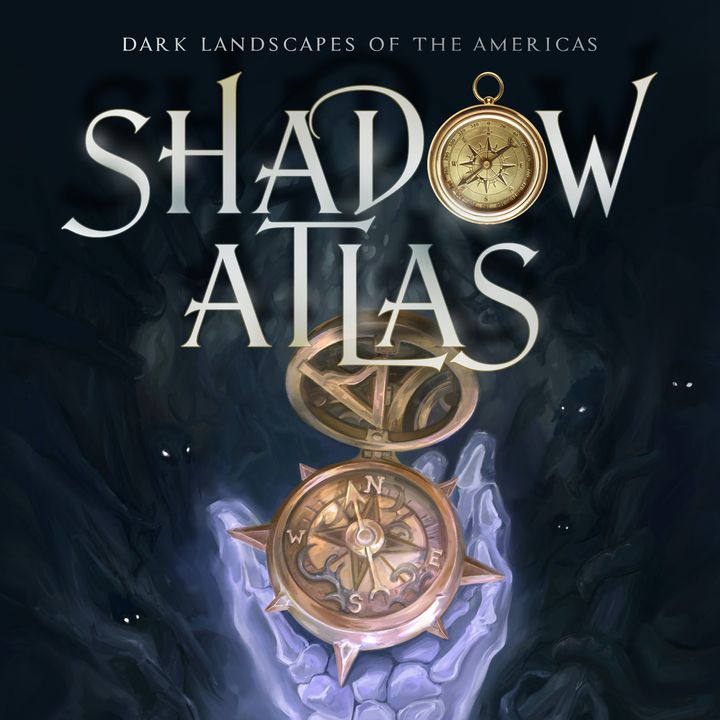Guided Writing Session Notes
Writing exercises and notes from a talk I did for the CIC

On Tuesday I led a guided writing session for the CIC Virtual Arts Week. The theme for this week was Transformation, so I tailored the writing exercises to showcase the transformative power of words. Here are those exercises for anyone who attended and wanted to have notes, and for everyone who would like to play along on your own time.
The times in parentheses are suggested times if you want to use a timer on your own. It’s okay if you go faster or slower, and it’s also fine to ignore them completely. If you use them and you find that you don’t finish certain parts, that’s also fine! If you feel like you are on a roll and want to keep writing after a timer is up, go for it! The point of these exercises is to get things started so you can build on them. If you feel like you’ve got a good flow, that’s great, and you can skip exercises and follow your instincts at any point.
I’m including my own example responses for your reference, but yours might look very different, and that’s okay! You can use these with a specific character or writing project in mind, or start with nothing in particular in mind (which is what I did).
Exercise 1 (30 seconds)
Write down three words that you associate with transformation. They can be specific and concrete or abstract. They can be objects, adjectives, actions, or concepts. They don’t have to make logical sense. Follow your intuition.
Here are the example transformation words I came up with:
Flight
Fire
Butterfly
Exercise 2 (1 minute)
Think of times when you (or a character in your project) might change from one thing into another. This could be as simple (going from work clothes to pjs), or complex (changing from a peasant to empress of five galaxies). The changes could also be less tangible and more emotional. Write down two examples.
Here are the examples I came up with:
Being single to falling in love
Being afraid to becoming brave
Exercise 3 (2 minutes)
Write down five words (one for each sense). If you are working on a specific project, do it with the project’s setting, characters, or other specific details in mind. If you are stuck, use things in your immediate surroundings. As with the previous exercise, these can be abstract or concrete, and are open to your interpretation.
Here are me example sense words:
see: purple
hear: styrofoam
smell: fresh
taste: sweet
touch: soft
Exercise 4 (2 minutes)
Take one of your five words and make a sentence about is as perceived via a different sense. If you are using a fictional character you can imagine how they might perceive a certain word though another sense. Again, this can be specific and concrete or abstract. You do not have to use the exact word. You can use the actual word, or you can think about the context in which you might encounter the object or concept and let it inspire you.
A concrete example is the sound word styrofoam perceived through touch as, “She winced at the feel of styrofoam squeaking against her teeth.”
In this first example, I thought of the awful squeak styrofoam can make as my sound word, and then I used that directly to combine with the feel of accidentally rubbing a styrofoam cup against one’s teeth—a touch sense as well as a sound.
An abstract example is the taste word sweet perceived through sight and scent as, “An ostentation of pink frivolity hung in the air.”

Image description: A pink cloud of cotton candy in focus against the blur of bright lights, possibly at a carnival
In this second example, I imagined what might taste sweet, and the first thing I thought of was cotton candy. Often cotton candy is pink, so I thought it might smell like a pink scent to my character, who might be perceiving this at a carnival.
Exercise 5 (5 minutes)
Take one of your transformation words and apply it to one of your sensory sentences to make a larger paragraph exploring that perception through the transformational word.
For example the sweet pink cotton candy, if I use the transformation word flight, I might then explore this carnival setting with flight. How does my character feel about it? Is the sweetness now scary because she is afraid of heights and knows she has to ride a ferris wheel?

Image description: A carnival midway at night with brightly lit rides.
This does not need to be a conflict or challenge, and the original word does not have to appear in that paragraph.
My example paragraph was:
A pink ostentation of cotton candy and frivolity hung in the air. Marissa looked up into the blinking lights of the midway, and shuddered. Ethan was laughing and tugging her hand, which was sweaty tingling. He would want to do the rocket flyers next. He always did. And she would have to go with him because mom had said they had to stay together and that meant doing whatever Ethan wanted, whether Marissa liked it or not.
Exercise 6 (5 minutes)
Imagine how your setting or character might transform. What would it take to make that happen? Would it be good or bad? What is an obstacle to that transformation? What is an incentive?
This is a brainstorming exercise and it can be structured or loose. It could use complete sentences and paragraphs or single words. You’re stepping out of the narrative here and letting your mind explore.
My example:
Carnival, fear of heights… not speaking up for self. Could get over fear? Could learn to speak up? Obstacle… fear of getting in trouble? What if she is afraid because it will be dangerous? What if she’s got a psychic ability? Obstacle: not wanting to “be a baby” not wanting to go against parents’ directions. Incentive: not wanting to die?
Exercise 7
Build on your first paragraph by introducing one of the incentives or obstacles you brainstormed. How does your character react?
“Hurry up, Mriss!” Ethan said, but Marissa dragged her foot until she started to stumble and then crouched down on the dusty pathway.
“My shoe’s untied,” she said. It was a lie, but she made it true, surreptitiously tugging one lace downward as she lowered. She knew in the pit of her stomach that she could not go on the rocket flyers. Not today. Not now. And she couldn’t let Ethan go either.
I didn’t finish my thought in this exercise period, but that’s okay. I know from my brainstorming exercise that I am working toward having Marissa figure out a way to stop them from going on the ride because she knows it is dangerous, and even though I haven’t yet written how or why that happens, the context has informed what I’ve written so far. Depending on your writing process and speed, you may come out of a 5 minute timed segment with a lot more than one paragraph, or with just one or two sentences. Either option is okay, as is anything in between. There’s no magically “correct” amount of words.
Exercise 8 (5 minutes)
Imagine the events of this scene from a different perspective. How do they perceive the same setting and events? Does the new perspective recognize that there is a moment of transformation happening?
This doesn’t have to be an exact reimagining of the scene. It could be a continuation, moving froward in time. For example, in the case of the girl who is afraid of heights at the carnival, this could be someone else witnessing her experience of that moment, or it could happen a few moments later.
My example:
The ring toss barker scanned the crowd looking for his next mark, and grinned when he noticed the small girl being tugged along be her brother. Siblings were always good for a little competition. Of course competition was always the most satisfying when it came with big prizes. And big prizes meant money.

Image description: a wall of colorful plush toy prizes at a carnival.
“Hurry up, Mriss!” he heard the brother say.
The girl didn’t hurry, though. Instead she stopped, untying and retying her shoe.
“Ring toss!” he called. “Come play the ring toss! Special for families, two for the price of one for the next five minutes!”
The little girl darted a calculating glance at his booth. As though she was trying to figure out how long she might stretch a midway game to avoid the thrill rides her brother craved. Well, he was certainly happy to help her find out.
“How about you, sir?” the barker called to her brother. “Can you throw a ring better than your little sister there?”
This started in the action I had already written, but moved forward from there. I’m not sure if I will write more of this, but I started with nothing and used these exercises to come up with a setting, three characters with three different agendas, and some obstacles and incentives for changing the status quo. That’s not quite everything you need to tell a satisfying story, but it’s a good start!
Thanks to everyone who attended the guided writing session on Tuesday! It was a lot of fun! For everyone else, let me know if you try these and how you like them!

